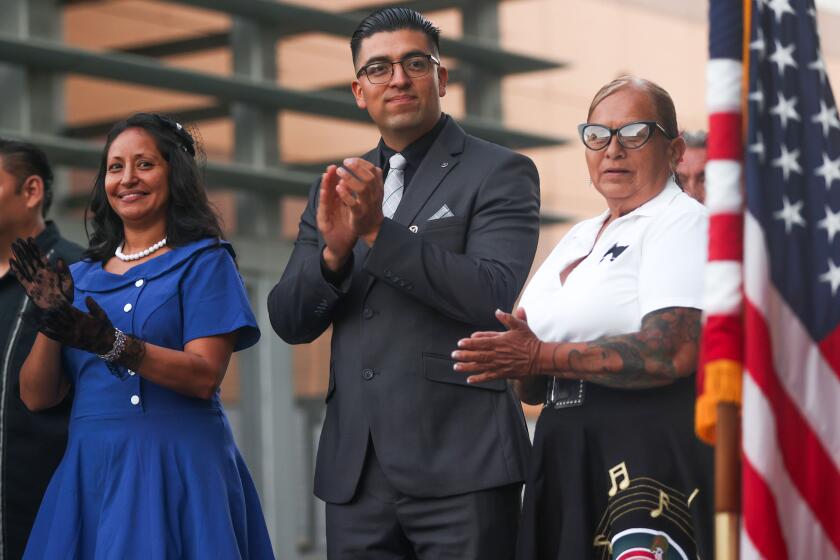Investigating the interrogators
One of the most shameful chapters in the war against terrorism was the complicity of George W. Bush’s Justice Department in the CIA’s use of “enhanced interrogation techniques” — in plain language, torture — to extract information from suspected terrorists. Now the coauthor of two notorious 2002 memorandums issued by the department’s Office of Legal Counsel has confirmed that interrogators transgressed even the minimal restrictions imposed by the memos.
In an interview conducted by the House Judiciary Committee in May but released only last week, former Assistant Atty. Gen. Jay S. Bybee acknowledged that the department did not approve some of the most revolting methods employed by the agency, including the repeated waterboarding of two “high-value detainees.” Bybee’s account vindicates Atty. Gen. Eric H. Holder Jr.’s decision to investigate whether some interrogators failed to act “in good faith, relying on Justice Department guidelines.”
Of course, the fact that the memos stopped short of authorizing some cruel and degrading methods doesn’t make the Justice Department policy humane. Far from it. One of the memos, sent to then-White House Counsel Alberto R. Gonzales, said: “Physical pain amounting to torture must be equivalent in intensity to the pain accompanying serious physical injury, such as organ failure, impairment of bodily function or even death. For purely mental pain or suffering to amount to torture … it must result in significant psychological harm of significant duration, e.g., lasting for months or even years.” The other memo, sent to the CIA, not only authorized the waterboarding of a detainee named Abu Zubaydah but also facial slaps, sleep deprivation, stress positions and the placement of Zubaydah, who has a phobia about insects, in a “confinement box” with one.
Still, the evidence is that interrogators went even further. Bybee, now a federal judge, said that the department hadn’t authorized diapering detainees, placing them in extended solitary confinement, shackling them to ceiling hooks, punching them or subjecting them to high volumes of music or noise. Most significantly, Bybee agreed that the memo authorizing the waterboarding of Zubaydah contemplated that there would be no “substantial” repetition. Yet Zubaydah was waterboarded 83 times, and Khalid Shaikh Mohammed, the alleged 9/11 mastermind, 183 times.
Whether CIA interrogators exceeded their instructions is being investigated by John Durham, a veteran federal prosecutor who is also scrutinizing the destruction of videotapes of interrogations. But Bybee’s statements and the findings of both the International Committee of the Red Cross and the CIA’s inspector general suggest that was the case. If the Justice Department agrees, it should prosecute the wrongdoers even if that creates political problems for President Obama. Referring to the abuses of the Bush administration, the president has said he prefers to “look forward, not back.” But sometimes the price of progress is a reckoning with the past.
More to Read
Get the L.A. Times Politics newsletter
Deeply reported insights into legislation, politics and policy from Sacramento, Washington and beyond. In your inbox three times per week.
You may occasionally receive promotional content from the Los Angeles Times.










